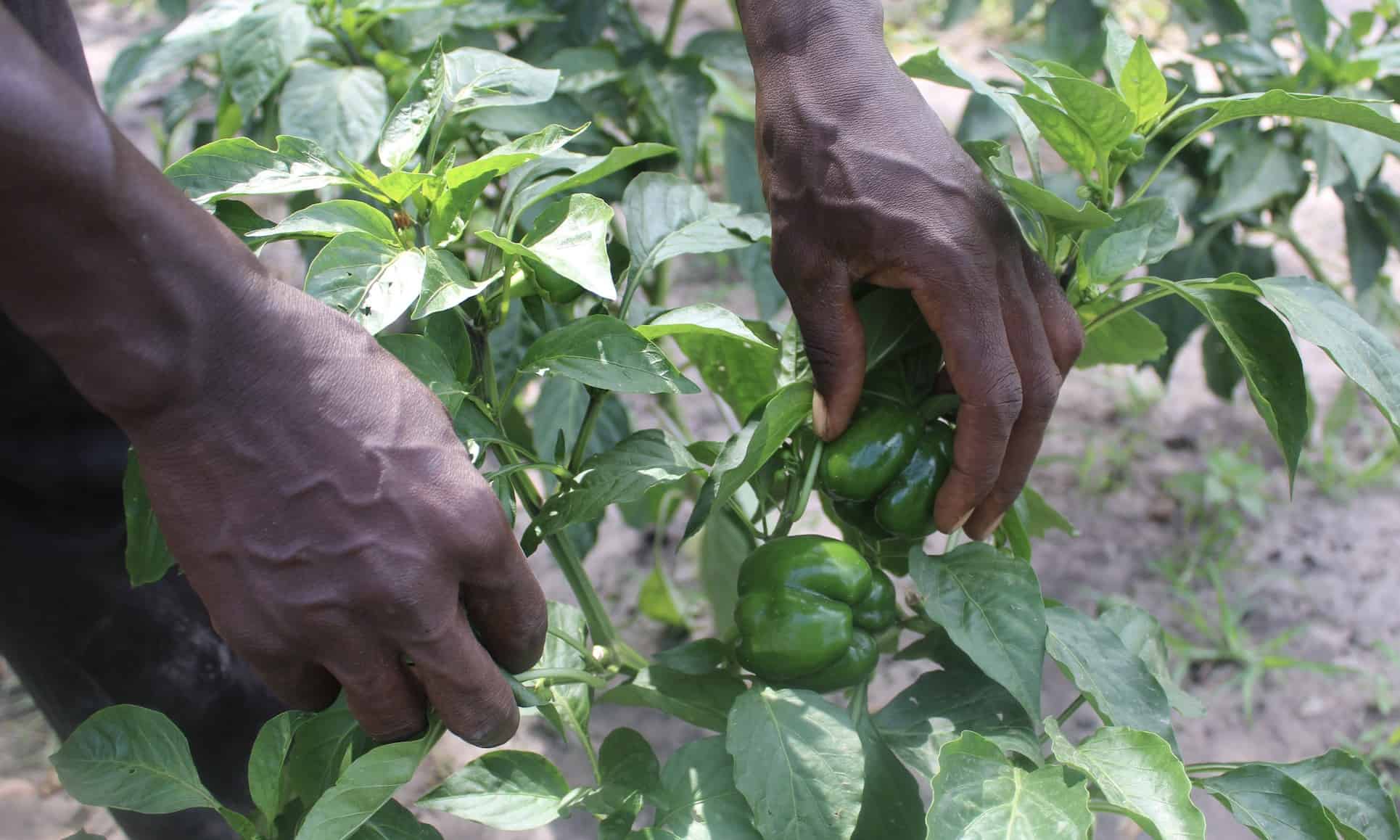“I was not really that enthusiastic because most of the projects in our area are not profitable for the population,” he says.
But he signed up after speaking with local TREES staff about the project and says he hasn’t regretted it since.
“Trees has changed my life dramatically,” he says.
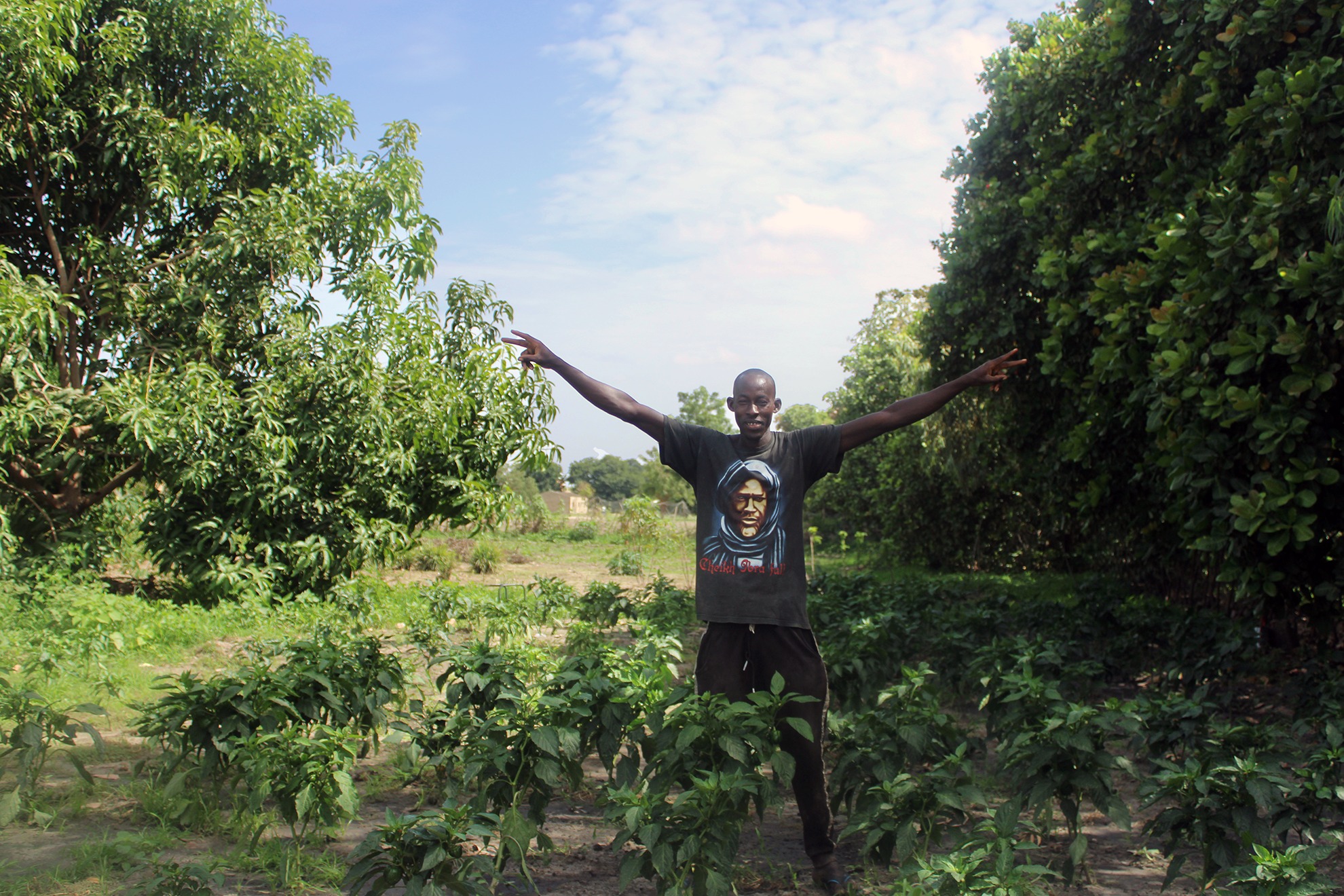
Looking for a Safer Path
Illiterate, with no formal education, Mor Niang had always struggled to find reliable job opportunities. He worked as a shopkeeper for his uncle and as a mechanic. More recently he borrowed a motorcycle and worked as a motorcycle taxi driver. After almost crashing on a busy road, Mor was looking for a safer career path.
“I didn’t have a helmet so I risked my life every day. With trees, no more risk! I have a food helmet for myself and my whole family!” he exclaims.
When he joined TREES’ training program he quickly began learning how to protect his land with trees and to diversify his crops so that he had more to eat and sell throughout the year.
“I had land but I never really knew how to farm,” he says.
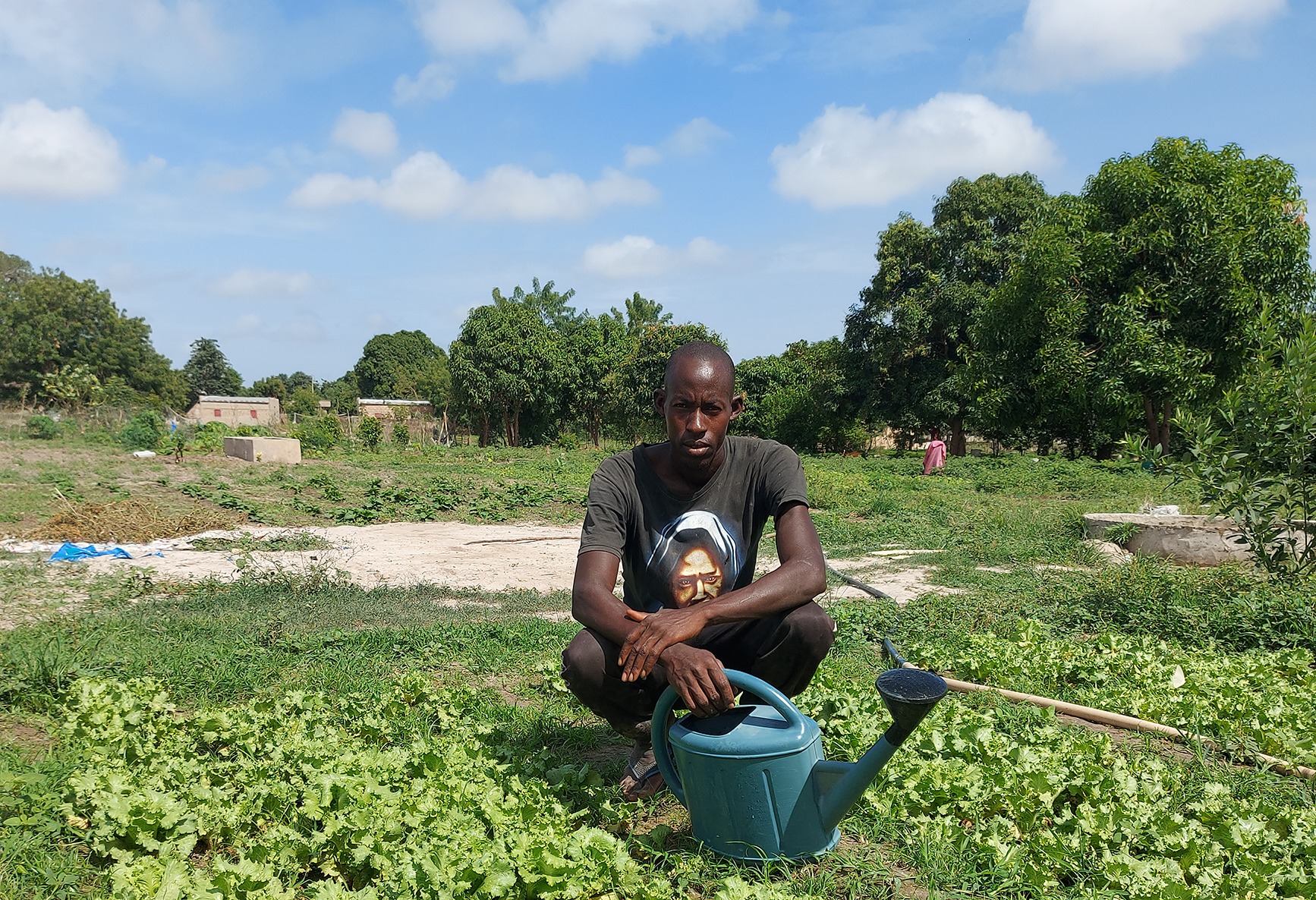
Finding a New Way to Farm
Typically, agricultural activities in Fatick, Senegal are reserved for the rainy season. Monoculture practices result in one harvest for the whole year. With more farmers adopting the Forest Garden Approach, fresh fruits and vegetables are now regularly available.
“The village has come together around this common objective of agroforestry,” says Mamadou Sy, TREES Lead Technician in the area.
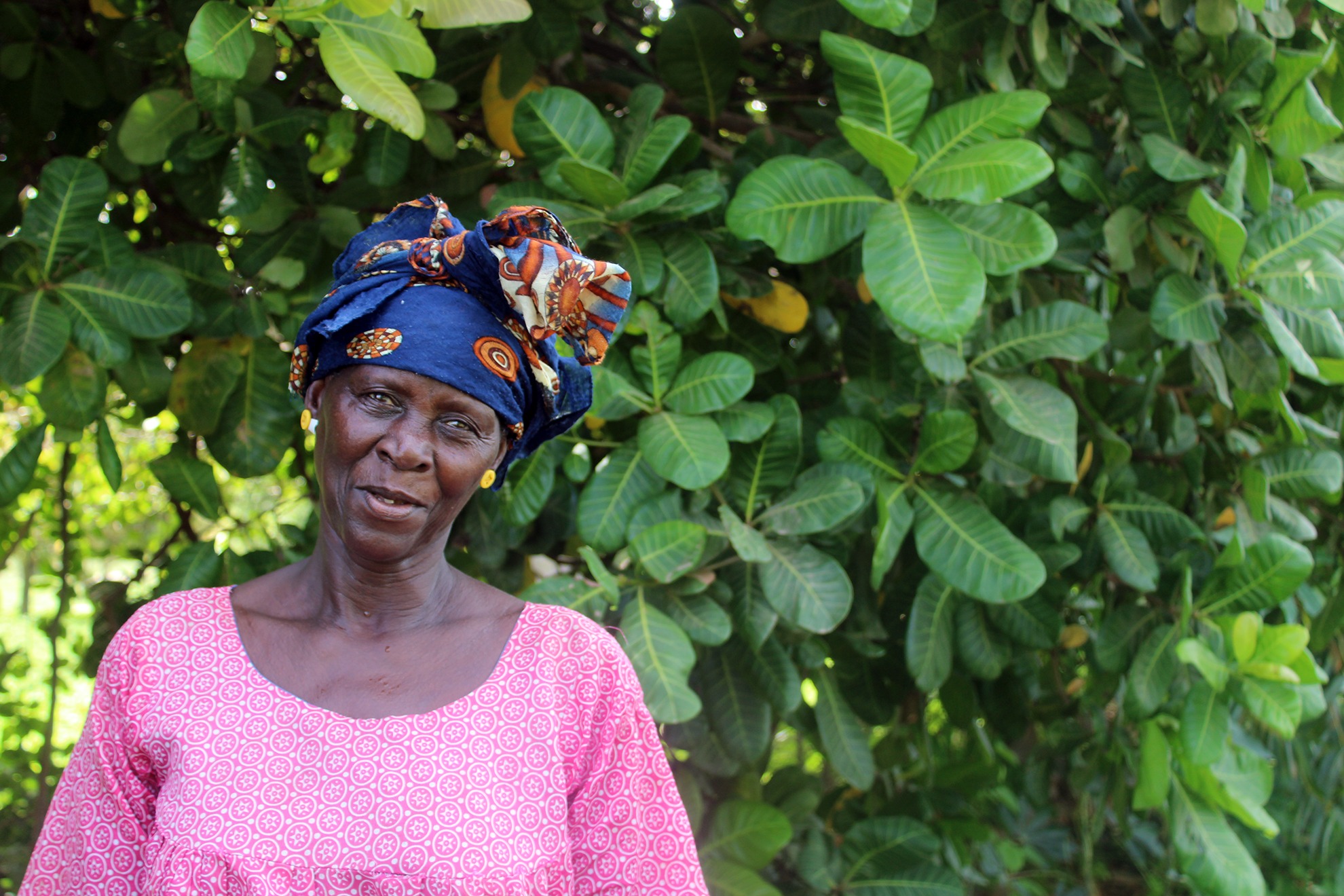
Mor Niang and the other farmers in his group are managing flourishing Forest Gardens with thousands of trees and dozens of species, including foods like peppers, okra, tomato, lettuce, and eggplant.
Before their Forest Garden, Mor’s two young children were in poor health.
“Today I have been able to purchase health insurance for them with my crops. They also have a more healthy lifestyle… I believe that consuming multiple vegetables and fruits makes them more vigorous,” he says.
Not only is his family eating better, they’re living more comfortably too. The 30-year-old has used his steady income to put a roof on his family’s home.
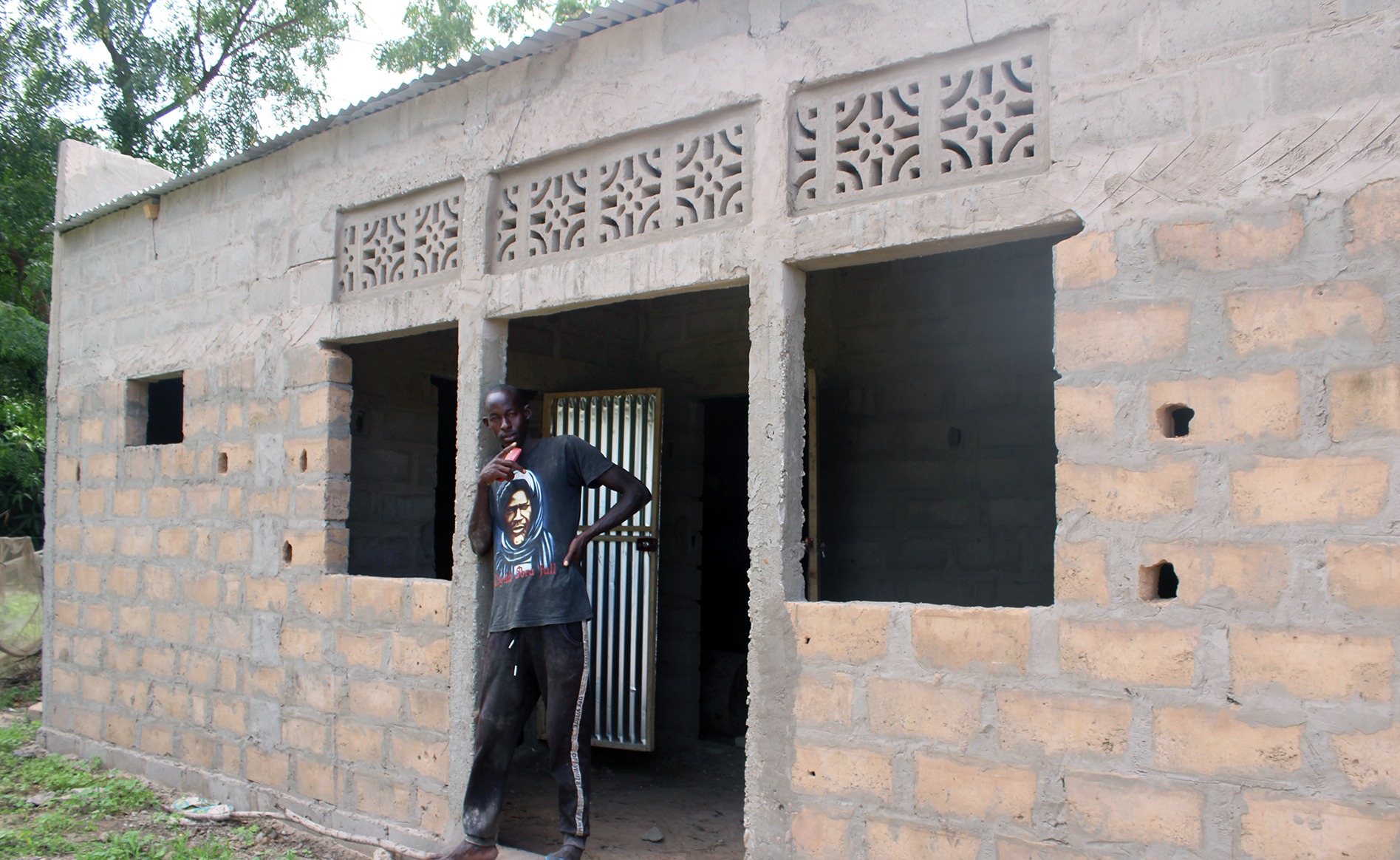
“I never thought that with my field I could finish building my house, it’s really unbelievable! I finally have a decent roof for my little family.”
As he continues his Forest Garden training, Mor Niang looks forward to continuing to strengthen his Forest Garden and taking advantage of new income opportunities. He’s saving up to buy chicks and plans to start selling chickens to neighboring farmers.
“I know that if this project goes around Senegal in a few years, everyone will have food security and [opportunity]!”
TREES works with farmers across sub-Saharan Africa to end hunger, poverty, and land degradation. Learn more about their approach and become a part of their impact with a donation.
